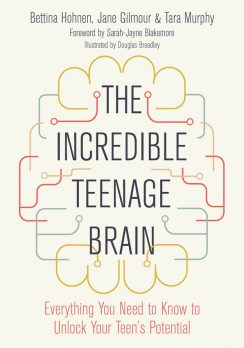Publisher
Jessica Kingsley Publishers
ISBN 10
178592557
Published
21 Oct 2019
The Incredible Teenage Brain promises to tell you everything you need to know to “unlock your teen’s potential”. As someone with considerable professional and personal experience of teenagers (and their brains), the sheer size of this 17-chapter book was off-putting. It audience is unclear too.
The authors’ styles are upbeat and positive – somewhat gratingly at times – aiming to redress the “Kevin the Teenager” cliché in similar books. It makes no apologies for its scientific slant and, at the beginning of each chapter, goes into excessive detail about the brain’s workings.
But the examples are disappointingly basic. Whether this is evidence that the authors are out of touch with real-life teenagers, their families and teachers or whether this is a question of US-UK cultural divergence is unclear.
In one, a teenager makes a mistake doing the laundry. That anyone would respond in the way the book suggests, worrying that “my child is a failure, will never succeed in life” is shocking. The blindingly obvious and correct answer – that young people learn by making mistakes – hardly seems to warrant a book, let alone one this big.
In another, adults are given the amazing revelation that they can encourage young people to answer questions by smiling at them. Imagine. The teaching profession will be rocked to its core!
But the full horror of The Incredible Teenage Brain is in its formatting as a practical parenting book. Exercises at the end of each chapter encourage readers to reflect on its concepts and examples by making notes on events in their own family. The very idea of such notes falling into the hands of a teenager is frightening, and what effect that experience could have on a teenager’s development is simply too great to consider. Indeed, it seems neither authors nor publisher have bothered trying.
This is a book that doesn’t know who it’s for.
For the average parent, then, most of the book’s advice could be given out in a couple of pages for each chapter without the A-level neuroscience. Parents want tips and tricks, not academic journals. But neither will they look for TV-magazine-style tips and tricks as basic as this in such a large tome.
As a teacher of teenagers some areas were realistic, but few were useful. One chapter describes teenagers replacing loving parental relationships with strong bonds with their new friendship circle. This is very real and very common. Mothers of year 10 girls are especially likely to contact school trying to work out what they have done wrong. The book’s reassurance might calm many, but so might a chat with other parents – a far likelier source of advice than detailed explanations of the neuroscientific reasons for the phenomenon.
Although it has been edited for the UK market, The Incredible Teenage Brain still reads like an American book, and it’s not just the tone. Young people worrying about their Japanese homework is a rare and unlikely occurrence this side of the pond, for example, and this makes the whole book seem implausible.
There is a section on the dreaded growth mindset and outliers theories. Both of these have been considerably re-examined for their usefulness in education in the UK, but the book makes no mention of that. Whether that’s because these theories still wield influence stateside, or because the authors are unaware of these developments, it doesn’t inspire much confidence in the text.
This is a book that doesn’t know who it’s for. Those likely to benefit from its advice are unlikely to get anywhere near it for its ponderous size. Those likely to read it are unlikely to benefit from its lack of realistic application.
In all, The Incredible Teenage Brain is as confusing as teenagers themselves – a blend of detailed neuroscience and truisms too basic to be useful. Any teacher or parent with the stamina to read it deserves commendation, and I will gladly accept yours, but hopefully I will have saved you the bother. You would be better off spending the time celebrating your teens than investing in this. By the time you have finished, they will have quietly unlocked their own potential.













Your thoughts